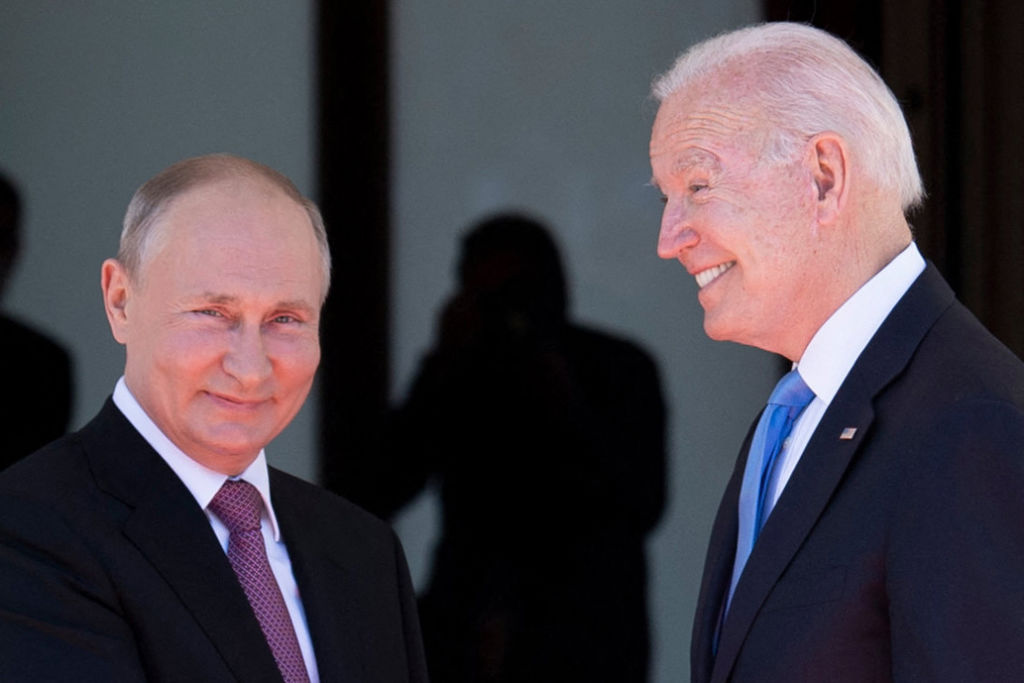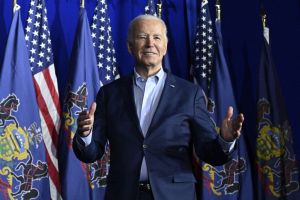It would probably be wrong to say that Joe Biden and Vladimir Putin got on like a house on fire. But the results of the Geneva summit, which observed all the rules of Cold-War era summitry — from the venue to the formality of the arms-control and confidence-building agenda — far exceeded the deliberately doom-laden forecasts. In the space of around four hours at the Villa La Grange, the leaders of the United States and Russia effectively normalized relations that for the best part of four years had been bouncing around at rock-bottom, and dangerously so.
The Russian and American ambassadors are returning to their capitals, working groups are being set up, including on the sensitive matter of cyber-security (something that Donald Trump was excoriated in Washington for even trying to start) and the two presidents are saying in their separate ways that their opposite number is someone they respect and can do business with. A ‘worthy adversary’ was how Biden described Putin on the eve of their meeting; a ‘professional…totally in command of the issues at hand’ was how Putin described Biden when he talked about the summit afterwards.
All of which marks a big improvement in the international atmosphere, even if you thought, as I sometimes did, that the dire warnings about an imminent risk of US-Russia armed conflict was alarmist hype. The world is just that bit safer when its two biggest nuclear powers are making an effort to get along.
Even this slight warming, however, has not been universally welcomed. Washington’s latter-day cold warriors in Congress, in the think-tanks and the media, are lamenting the summit’s relative success. Hawks in eastern and central Europe, as well as leaders in Ukraine, also have their understandable reservations.
But there is one country where the resumption of more normal relations between the United States and Russia presents a particular dilemma — and that is Britain. The demonization of Russia that became a feature of US policy during Donald Trump’s presidency — despite, or more likely because of, his stated desire to start a rapprochement — suited the UK perfectly.
You may or may not believe the reports that British intelligence was involved in the efforts of Trump’s political foes to discredit him, but the interests of the UK were well-served by the hostility, verging on hysteria, towards Russia in Washington. Whether it was the US readiness to align itself with the sanctions and diplomatic expulsions that followed the Skripal poisonings in Salisbury — the US actually expelled far more Russian diplomats than we did — or the cold-shouldering of Putin and the designation of Russia as essentially a rogue state, this chimed very well with official attitudes in London.
Boris Johnson himself has breathed somewhat hot and cold about Russia. He had a failed attempt at rapprochement when he was foreign secretary and delayed publication of the Intelligence and Security Committee’s Russia Report. But he also issued immediate and categorical condemnations on everything from Ukraine to the treatment of the opposition figure, Alexei Navalny. But the overall tenor of official UK statements on Russia has been hostile — and comes with a no-holds-barred virulence — in a way that sets Russia apart from almost every other country in UK diplomacy.
Indeed, relations have been so bad for so long, that for a British politician to single out Russia as responsible for yet another crime comes with almost no diplomatic cost. The contrast with the way the UK treated China, at least until very recently, is stark. There is no way that any Russian company would have come close to making the inroads into the UK economy that China has made into the UK’s nuclear power sector, say, or Huawei in telecoms.
So what happened in Geneva leaves quite a big question for Boris Johnson’s government. If the US and Russia are to improve their relations, will this force a reassessment in London? Might Britain quietly embark on some little overtures of its own? And how problematic might that be, given the harshness of the rhetoric that has been exchanged by London and Moscow for so long?
One area that might especially concern Downing Street is the plan for the US and Russia to discuss cybersecurity, albeit on a trial basis. This is a field that the UK has designated as central to its technological and security policy and in which it is already something of a world leader. How comfortable will UK defense and intelligence officials be with the US talking to Russia about cyber, possibly over their head? Or will they try to get in on such talks, too?
That is just one area, however. The general picture could also be of concern. This is the second major international issue on which UK interests seem to have been bypassed since Joe Biden entered the White House — the first being the withdrawal from Afghanistan. And this divergence leaves the UK looking potentially quite isolated in the big wide world.
Barely 10 days have passed since Boris Johnson hosted the G7 summit in Cornwall, with the bonus of being the first foreign leader to host Joe Biden since his inauguration. Their one-on-one talks suggested — as they were doubtless designed to — that the UK was successfully strengthening the transatlantic relationship as a counterweight to its departure from the EU.
While the communiques of the G7 and the Nato summit that followed left the UK within its comfort zone on relations with the US and Russia, the second half of Joe Biden’s week did not. At the first formal US-EU summit for four years, it was clear that the new US president was taking the EU more seriously as a bloc and a partner than maybe any other US president before. The joint statement opened: ‘The United States and the European Union represent 780 million people who share democratic values and the largest economic relationship in the world.’ Then came Geneva, and the potential revival of US-Russia cooperation.
None of these developments, by themselves, is definitive. Words and deeds, as always, may diverge. Taken together, however, they suggest that the UK will be following quite a lonely road if it is to realize anything like its ambition of ‘Global Britain’.
This article was originally published on The Spectator’s UK website.


















